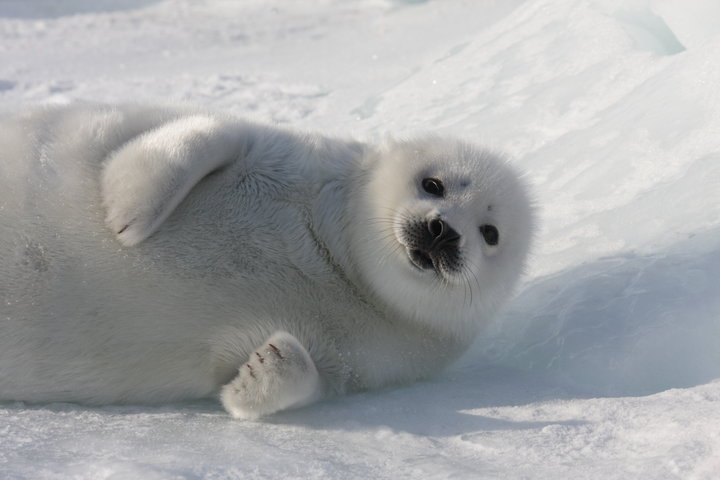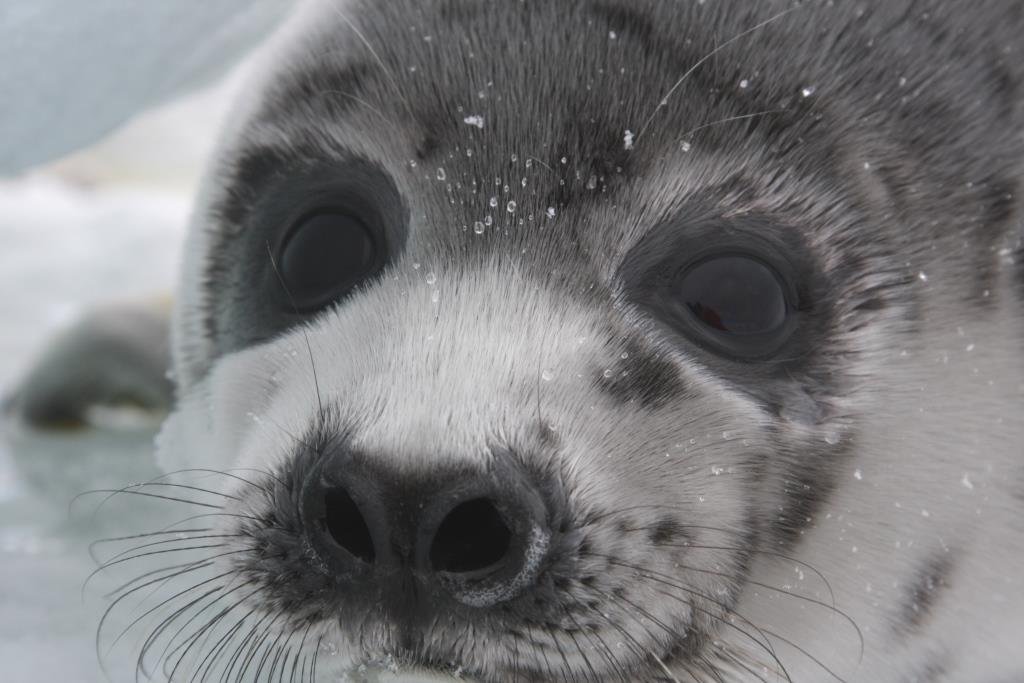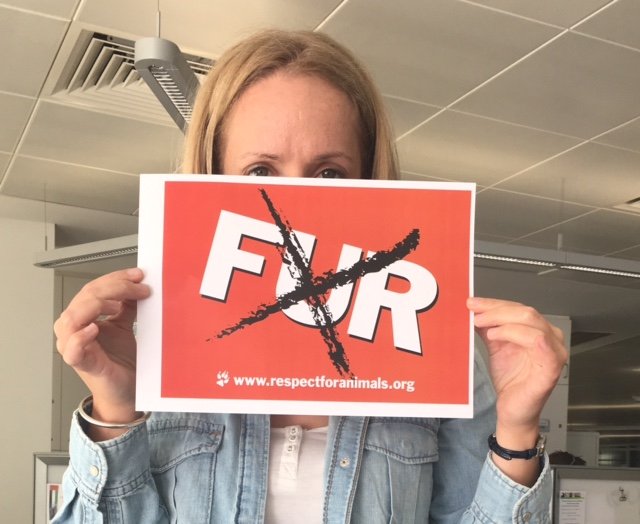Every year off the east coast of Canada, out of season fishermen brutally kill thousands of baby seals – just for their fur. Their skinned carcasses are left to rot. These beautiful, innocent animals are clubbed or shot before being skinned… all for a product that NO ONE needs!
Repelled by the extreme cruelty, the European Union has now banned the sale of seal products, yet the Canadian government refuses to act to end the killing-ignoring world opinion.
You can make your opinion known by getting involved in our Save the Seals campaigns:
Help save the seals. Take action now.
Sign our letter to Canada’s High Commissioner to the UK:
Boycott Canada
Don’t visit Canada as a tourist for as long as the seal hunt is allowed. A beautiful country’s international reputation is tarnished by the bloody seal kill.
Boycott Canadian goods
The same fishermen who kill these beautiful seals catch seafood that finds it way onto our supermarket shelves, especially lobster, prawns and scallops. Check your supermarket labels and let us know what other Canadian goods (such as maple syrup) are being sold in your local shop.
Donate to Respect for Animals
 About the hunt
About the hunt
Canada’s commercial seal hunt is one of the largest slaughters of marine mammals on Earth. The official statistics are shocking enough, but these do not include the thousands of seals who have been wounded by sealers’ club or rifles and briefly escape under the ice, only to slowly die in agony.
Most of the seals killed are less than a few months old. at the time of slaughter, many of these pups have not yet eaten their first solid meal or taken their first swim, leaving them utterly defenceless against the sealers. The baby seals are killed for their fur and their carcasses are routinely left to rot on the ice.
As far back as 2001 an independent veterinary panel studied the commercial seal hunt and concluded that it results in considerable and unacceptable suffering, with 43% of the seal examined likely to have been skinned whilst conscious.
The economics of the hunt
In Newfoundland, where over 90% of sealers live, income from the seal hunt accounts for less 0.5% of the province’s economy. Less than 1% of Newfoundlanders participate in the seal hunt.
Sealers are commercial fisherman who take part in the seal slaughter for a few days a year during the fishing off-season, earning only a small fraction of their annual incomes from killing seals.
The Canadian seafood industry is worth billions of dollars each year. In contrast, the landed value of the seal hunt is far, far smaller and is subsidised by the Canadian government, who also spend millions promoting sealing internationally and trying to block prohibitions on seal product trades.

In 2009, the European Union banned the import and sale of commercial seal products, officially recognising that ‘seals are animals that can experience pain, distress, fear and other forms of suffering.’
This was challenged by Canada at the World Trade Organisation, in a landmark case that upheld the Eu ban. This ruling allowed for countries/unions to ban the import of goods on moral grounds and helped set a precedent for such cases.
With the ban the European Union joined the United States, Mexico and Croatia in prohibiting trade in products of commercial seal hunts. In 2011, the Customs Union of Russia, Kazakhstan and Belarus prohibited trade in harp seal fur and Switzerland introduced a similar ban in March 2017.
Canada has treated public opinion with contempt, ignoring worldwide pleas to end the barbaric seal hunt and the overwhelming evidence of the extreme and inherent cruelty involved.
The EU is a huge step forward for seals but on its own this ban will not end the hunt. Only economic pressure can that, so this is why Respect for Animals are co-ordinating a boycott of Canada.




